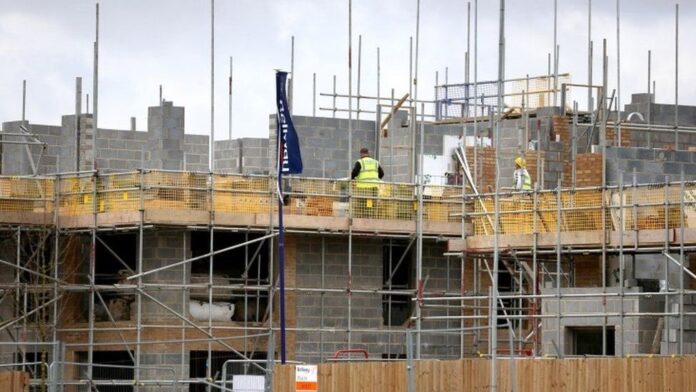New figures from the Construction Industry Training Board (CITB) forecast a big rise in the demand for construction workers over the next five years.
- An extra 11,500 workers will be required to meet construction demand by 2026 in Wales
- Wales’ recruitment must grow by 2.1% annually to meet increasing demand – higher than the UK national average (2.0%)
- In Wales, new build private housing, public non-housing and housing repair and maintenance sectors are expected to see the fastest rates of growth
- This comes as over a quarter of a million construction workers are needed across the UK to fulfil demand
14th June 2022: 11,500 additional construction workers will be needed in Wales by 2026 to meet growing demand in the industry, the latest Construction Skills Network (CSN) report finds.
The largest increases in annual demand in Wales are expected to be for occupations including bricklayers (540 per year) and electrical trades (280 per year). This comes as private housing; housing repair and maintenance and public non-housing sectors are set to see the fastest rates of growth in the region.
The report finds that over a quarter of a million construction workers are needed across the UK to fulfil demand. If projected growth is met on a national scale, construction employment across the UK is forecasted to reach a high of nearly 2.78 million workers by 2026.
With job vacancies at a record high, and unemployment at its lowest level in 50 years, the report forecasts that recruitment and developing a highly skilled workforce will be the biggest challenge construction will face over the next five years.
This comes as CITB urges industry and government to come together in refreshing the way the industry hires and trains, making construction an attractive place for everyone to work.
CITB Engagement Director for Wales, Mark Bodger said: “Construction is vital in developing and strengthening our regional and national economies, and our report shows the future is bright for Wales.
“Wales’ 2.8% annual recruitment growth predictions are encouraging. It’s major construction projects like the £500m investment in Dowlais Top to Hirwaun section of the A465 that will help to drive growth in Welsh construction. The industry has a lot to offer, and it must use its many strengths, and projects like these, to attract and retain top talent in a competitive recruitment landscape.
“Training routes into the industry will be a focus for us and we have to attract and retain more people from right across Wales. It will be a major task, but the industry needs to evolve and grow to reach its untapped potential for the success and prosperity of Wales’s and the UK’s economy.”
In CITB’s Business Plan,3 launched last month, three core challenges are set out. These challenges, which reflect the views of employers and a wide variety of stakeholders, are:
· Responding to the skills demands
· Developing the capacity and capability of construction training provision
· Addressing future skills needs.
The plan shows how CITB will invest over £233m across Britain to support construction throughout 2022/23.
CITB will create more accessible routes into construction, with a focus on apprenticeships providing first-hand experience of working on site. In Wales, CITB will be working with colleges to increase the uptake of traineeships, a pathway for learners that need additional support and insight before entering the industry. Traineeships will offer an additional assured learning opportunity to encourage people into construction. This year four providers will be offering traineeships pilot in Site Carpentry.
Help keep news FREE for our readers
Supporting your local community newspaper/online news outlet is crucial now more than ever. If you believe in independent journalism, then consider making a valuable contribution by making a one-time or monthly donation. We operate in rural areas where providing unbiased news can be challenging. Read More About Supporting The West Wales Chronicle
























